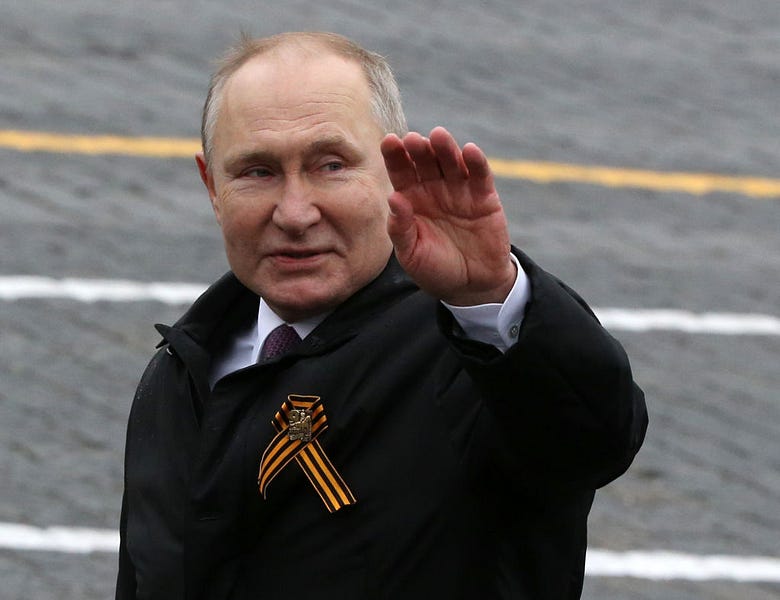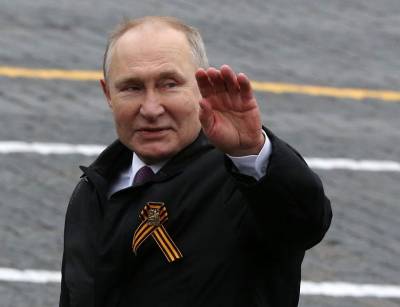President Joe Biden and Russian autocrat Vladimir Putin are scheduled to meet today for the first time since Biden was elected president.
For many in the foreign policy establishment and diplomatic press corps, this is an exciting opportunity to conjure some Cold War drama. Historically, such summits were major happenings. They were premised on the idea that tensions between the two nuclear powers were so great and grave, merely talking was an accomplishment in its own right.
Conservatives and other foreign policy hawks contend that the summit is a mistake primarily because it gives Putin the prestige he craves while giving Biden nothing in return. I tend to agree. But this argument also draws on the same Cold War nostalgia.
Conservatives often opposed U.S.-Soviet summits because they were seen as part of a process of “normalization” and détente that not only lent the Soviets undeserved legitimacy but often ended with concessions that strengthened our enemy and sapped anti-communist resolve here at home.
Worse, such summits were often used to buy cover or time for Soviet expansionism. Forty-two years ago this week, Jimmy Carter met with Leonid Brezhnev in Vienna to sign the SALT II treaty. Brezhnev personally promised his peaceful intentions to Carter, and six months later the Soviets invaded Afghanistan. Carter felt so betrayed that he ratcheted up defense spending, boycotted the Olympics and became a born-again Cold Warrior.
You can see how those arguments could be applied today, but I think we’d all be better served to ditch the Cold War stuff because circumstances have changed.
First, Russia is a basket case. Rife with corruption, entirely dependent on oil and gas revenues, and starving for foreign investment, Russia’s entire GDP ($1.7 trillion) is smaller than Biden’s first COVID relief package.
Second, as morally bankrupt as Soviet communism was, it nonetheless appealed to the hearts and minds of millions around the globe. No one, save would-be despots, looks at the current Russian “model” as something they want to emulate. That changes the stakes dramatically. We’re not competing with Russia for moral leadership.
That’s because Putin is best understood as a cross between a conventional mob boss, a James Bond villain, and a Latin American strongman. Estimates of Putin’s personal wealth range from $40 billion to $200 billion. Whatever the right number, he didn’t get that rich from wisely investing his $300,000 annual salary.
Putin holds onto power in part through crushing domestic opposition, intimidating or killing dissidents, blackmail, censorship, and other tactics of ruthless tyrants. But he also maintains control by keeping Russian society in a constant state of crisis by relentlessly fueling paranoia that the West is at war with Russia and he’s the only leader strong enough to hold her enemies at bay. A true Cold War nostalgic who once served as a KGB agent, Putin thinks the fall of the Soviet Union was “the greatest geopolitical catastrophe” of the 20th century. He believes that relations with the West are zero-sum: Whatever is bad for the West is good for Russia.
That’s why Russia is constantly meddling in Western elections (including our own in 2016), spreading disinformation on social media, and using Russian hackers to target state and local governments. It’s also why Russia’s propaganda machine loves to amplify America’s domestic shortcomings, real and alleged.
The idea that Biden (or anyone) can talk Putin out of his perceived self-interest is ludicrous. Someone who has clung to power through murder and oppression can’t be made to see the light with finger-wagging bromides about democracy and the rule of law. Russians who make those arguments to him get put in jail.
Biden would be well-served to tell Putin simply and bluntly that there will be concrete consequences to his actions—assuming Biden is willing to follow through. Beyond that, Biden should take a page from Putin himself. The Russian dictator sees these summits as a propaganda opportunity, domestically and internationally. Biden should, too.
For understandable reasons, propaganda has taken on a negative connotation, suggesting pernicious state misinformation. But propaganda was originally about propagating the faith, specifically Catholicism.
To his credit, Biden seems to be sincerely interested in propagating the faith of democracy, the rule of law and Western resolve. He won’t be able to persuade Putin of any of that. But that’s not the audience that matters. There are people throughout Russia who need to hear it—and in America, too.







Please note that we at The Dispatch hold ourselves, our work, and our commenters to a higher standard than other places on the internet. We welcome comments that foster genuine debate or discussion—including comments critical of us or our work—but responses that include ad hominem attacks on fellow Dispatch members or are intended to stoke fear and anger may be moderated.
With your membership, you only have the ability to comment on The Morning Dispatch articles. Consider upgrading to join the conversation everywhere.